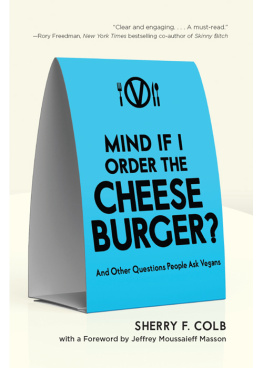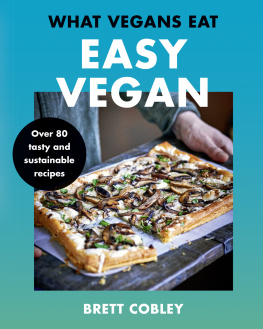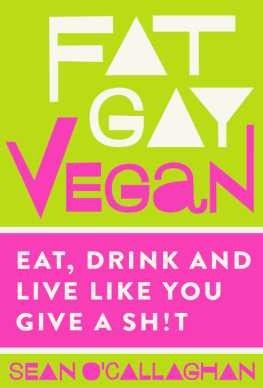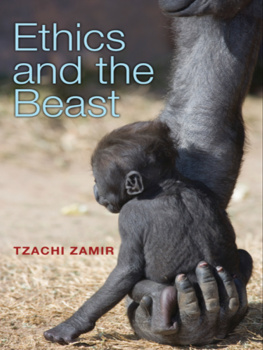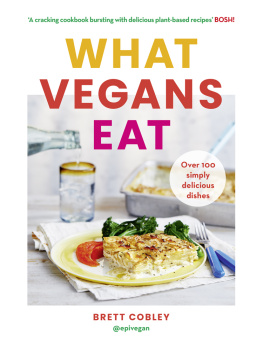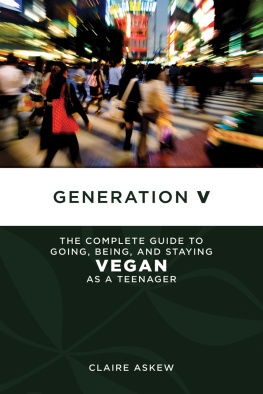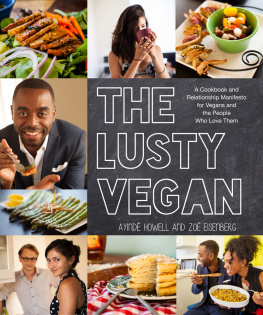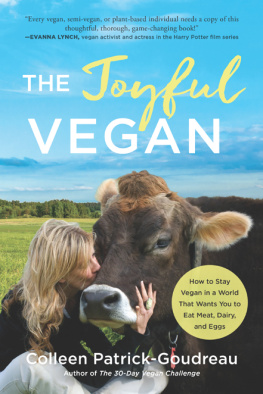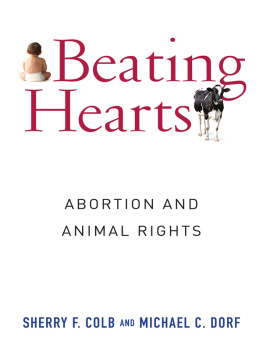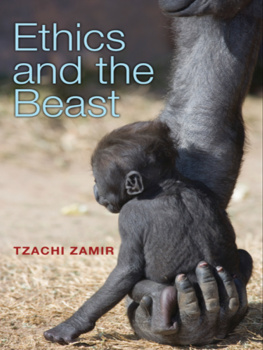Praise for Mind If I Order the Cheeseburger?
With compassion, humor, and eloquence, Sherry Colb provides a clear and engaging account of what motivates vegans to eat and live the way we do. A must-read for anyone who has ever wondered (or been asked) Why do vegans think it is okay to kill plants but not animals? or Why avoid dairy and eggs?
Rory Freedman, New York Times bestselling co-author of Skinny Bitch
With crystal clear logic and an empathic voice, Sherry Colb has written a must-read source for anyone curious, skeptical, or downright antagonistic towards vegan living. This book is destined to be a classic of the emerging vegan oevre.
Jonathan Balcombe, Ph.D., author of The Exultant Ark
A powerful, compelling, and thoroughly engaging defense of veganism from an absolutely terrific legal scholar.
Gary Francione, Board of Governors Professor of Law and Katzenbach Distinguished Scholar of Law and Philosophy, Rutgers University, author of Introduction to Animal Rights: Your Child or the Dog?
Mind If I Order the Cheeseburger? is full of thoughtful analyses of some of the most common, perplexing, and often challenging reactions to vegans and veganism. Any vegan or vegetarian who has wished they'd had a more informed response to a question or challenge about their ideologyand anyone who wants to better understand some of the fundamental concepts of veganismwill benefit from reading Sherry Colb's in-depth exploration of the issues.
Melanie Joy, Ph.D., author of Why We Love Dogs, Eat Pigs, and Wear Cows.
Sherry Colb's Mind if I Order the Cheeseburger? is a rare fusion of passion and logic, idealism and pragmatism, style and substance, andin its measured confrontation of the most challenging questions vegans facea revolutionary guide for advocates seeking to engage the ethics of eating animals through authentic dialogue rather than bombastic rhetoric. Colb's literary touch is something to behold. She writes in a way that will appeal to non-vegans and vegans alike, building bridges across an all too turbulent divide. This is food writing at its best and food writing as it should be: honest, inclusive, inspirational, and, more than you might imagine, timely.
James McWilliams, Professor of History, Texas State University, San Marcos, and author of Just Food and The Politics of the Pasture
Sherry Colb provides thoughtful, articulate, intelligent answers to the commonly asked questions faced by every vegan. Intertwining information, reason, and her own personal experience, Colb offers an invaluable aid both for those answering the questions and for those posing them. The perfect companion!
Colleen Patrick-Goudreau, bestselling author and creator of The 30-Day Vegan Challenge

2013
Lantern Books
128 Second Place
Brooklyn, NY 11231
www.lanternbooks.com
Copyright 2013 Sherry F. Colb
All rights reserved. No part of this book may be reproduced, stored in a retrieval system, or transmitted in any form or by any means, electronic, mechanical, photocopying, recording, or otherwise, without the written permission of Lantern Books.
Names and details of people and their case studies have been altered to protect privacy. Resemblance to any person known to the reader will be unintentional and coincidental.
Printed in the United States of America
Library of Congress Cataloging-in-Publication Data
Colb, Sherry F., 1966
Mind if I order the cheeseburger? : and other questions that people ask vegans / Sherry F. Colb.
pages cm
ISBN 978-1-59056-384-7 (pbk. : alk. paper)
ISBN 978-1-59056-383-0 (ebook)
1. Veganism. 2. Vegans. I. Title.
TX392.C685 2013
613.2'622dc23
2013007504
Contents
This book is intended as a reference volume only, not as a medical manual. The information given here is designed to help you make informed decisions about your health and about your life. It is not intended as a substitute for any treatment that may have been prescribed or recommendations given by your health care provider. If you suspect that you have a medical problem, we urge you to seek competent medical help.
This book is dedicated to my family of humans and nonhumans, Michael, Meena, Amelia, Sheyna and Cody, for inspiring me to see the world from multiple perspectives, and to the memory of my mother, Clara Colb (19202009).
Foreword
Jeffrey Moussaieff Masson
T here are many good reasons to read this wonderful book. For one, it is extremely well written, clear, and accessible. Reading it is like having a good and intelligent friend standing next to you as you struggle with all the major issues that come up when you consider becoming vegan. More and more people are doing just that. Another reason to read the book is that Sherry Colb, a professor of law and a former law clerk to the legendary Supreme Court Justice Harry Blackmun, is both very good at reasoning, and very good at being reasonable. There is nothing fanatic about this book. This means it is hard to avoid engaging with her reasons suggesting we become vegan. By the time you have considered her views, it is hard to dissent. Yes, you will say, she is right. So why the hesitation, you may wonder? She will tell you.
If you are already a vegetarian and want to take the next logical step and become vegan, there are very good reasons to do so, and Colb reviews all of them. I often hear people say the equivalent of Can [you] not see that cheese occupies an entirely distinct moral category from meat? Milk and eggs seem worlds away, it is true, from the direct violence we see when we look at red meat. But is hidden violence any less violent for not being apparent? Not according to Colb. Her arguments are compelling.
She is not ponderous, however. She can be lots of fun, even while she tells us things we need to know. People say: Well, animals are not as complex as we are. In many ways, that is true, and she tells us those ways:
Unlike humans, other animals cannotso far as we knowdo calculus, organize a complex criminal justice system, plan for retirement, or write a novel. Such differences mean that when we organize a human society, we would not want to allocate important responsibilities to nonhuman animals. We would not hire chickens to treat our illnesses or sheep to teach us English, and we would not appoint fish to serve on the federal (or state) bench.
Nicely put.
She also lets us know that when it comes to suffering, pain, and sorrow, none of those abilities matter. She makes it all so clear and easy to understand. Of course, I found myself exclaiming over and over as she made her points.
She is not a prig, not somebody who thinks anyone who is on the other side, who eats meat and is not an animal rights activist, is simply obtuse or stubborn or ignorant. She suggests something far more subtle at work here, and it is enlightening: [T]he incentive of one side of the debate to resist hearing the merits of the other sideout of a fear, subconscious perhaps, of having to alter one's life in a fundamental waycan easily impede full engagement in the discussion. The stakes in such a discourse can be high. True, we are not talking about simply deciding what color dress to wear today, but how we should live our lives, how much consideration we need or should give to other animals who share this planet with us.
But she accords humanity to the other side as well, and I have not seen anyone else make this excellent point in quite the same way: Just as vegans value the lives and experiences of nonhuman animals, however different those lives may be from our own, so we must understand and empathize with the feelings, associations, and anxieties of non-vegan humans.

